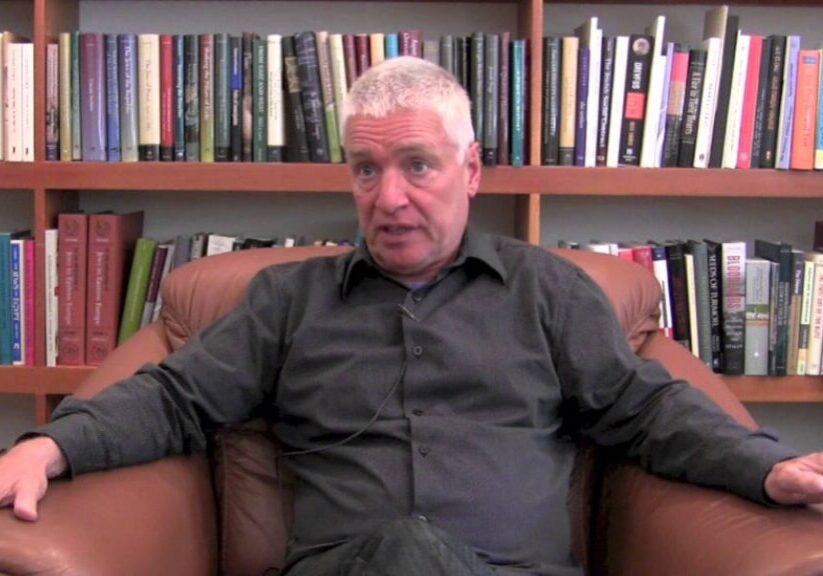Australia/Israel Review
Media Microscope: Extremist du Jour
Sep 1, 2007 | Jamie Hyams
Jamie Hyams
Extremist du Jour
Our media often features Palestinian advocates whose views are so extreme that one would hope they do their cause more harm than good. There are apparently not enough of these locally, so we are often subjected to overseas extremists. One who appears sporadically in our media is Ghada Karmi, a former consultant to the Palestinian Authority and currently a research fellow at the Institute of Arab and Islamic Studies at Exeter University, England.
Ms. Karmi appeared on the July 30 edition of Phillip Adams’ Radio National program “Late Night Live” to discuss the proposed boycott of Israeli academics by their British counterparts. Her fellow guest was David Hirsh, a British academic who has been an active campaigner against the boycott.
Ms. Karmi claimed that the boycott would not be against Israeli academics, but against “the institutions which make up the Israeli establishment and which, of course, are complicit if not directly active in the oppression of Palestinian academic life and the way that Palestinians don’t have any academic freedom.”
Of course, the Palestinians would not have any academic life without Israel. In 1967, when Israel took over the West Bank and Gaza after 19 years of rule by Jordan and Egypt respectively, and prior to that the British Mandate and the Ottoman Turks, there were no universities at all. Now there are 11, eight of which were established prior to the Palestinian Authority. Also, the restrictions now imposed on Palestinian life are the direct result of Palestinian terrorism.
Of course, Ms. Karmi would never let inconvenient facts such as these get in the way of a good rant. Sadly, neither did David Hirsh, who agreed that the treatment of the Palestinians is unacceptable and that there is a problem with academic freedom in Israel. His argument was that an academic boycott was a counter-productive way to challenge this behaviour, that it would bolster the Israeli right and that it is classic antisemitism in the tradition of previous boycotts of Jews. He should have expanded on this point by pointing out that there is no academic boycott proposed against countries with far worse human rights records than Israel is even accused of.
Adams discredited himself in the discussion when he raised the issue of a boycott of companies providing machinery used in the construction of Israel’s security barrier and said, “One can’t help but think that a boycott on certain German companies in the ’30s might have been extremely useful.” Hirsh immediately objected to this parallelling of Israel with the Nazis.
By conceding most of Karni’s points, Hirsh made it hard to actually win the argument, but where he did score some points was in affirming his support for a two-state solution and asking Karmi whether she also supported one.
She initially tried to avoid answering but, when pressed by Adams, claimed that the only important issue was to end the occupation, and that the relations between the two sides could be determined once that had happened.
Karmi appears to have been somewhat the extremist du jour, because on July 25, she also had a piece in the Canberra Times which urged Hamas and Fatah to stop fighting each other and instead concentrate on the real enemy – Israel. In her history of previous Palestinian infighting, she claimed that the British Mandate authorities were “blatantly pro-Zionist”. While the mandate authorities agreed in principle, as required by their League of Nations mandate, that there should eventually be a Jewish “national home”, by the late 1930s they were deliberately making it as difficult as possible for it to actually be established, and were no friends of the Zionists. So it appears that, for Karmi, anyone who thinks, even in principle, that Israel should exist is “blatantly pro-Zionist”.
Clearly an advocate of violence, she complained that, “the Fatah leadership today has discarded resistance against Israel in favour of ‘peace’ with an enemy that has never reciprocated.” Apparently, Israel’s many peace offers never existed in her world.
She also complained that, “Palestinian demands for an Israeli withdrawal from the 1967 territories, the return of refugees and full state sovereignty are all rejected by Israel. The Western powers, which could have countered this rejection, are fatally compromised by their devotion to Israel’s regional supremacy.” In fact, Israel has offered to return the equivalent of the land taken in 1967, and to give full state sovereignty subject to security guarantees. It has only rejected the “right of return” of the millions of descendants of refugees because, as Karmi well knows, this would mean the replacement of Israel with a second Palestinian state. Evidently, for her this would be a desirable outcome.
![]()
Tags: Anti-Zionism






